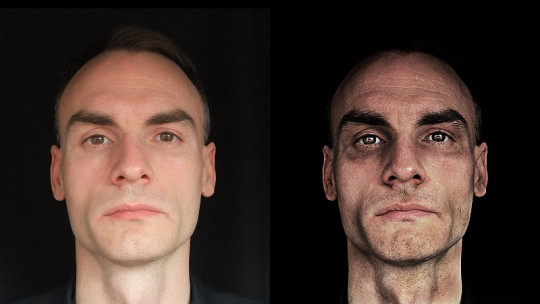
The different personality types that our species displays show the extent to which each human being is different. However, not all of these variants of ways of thinking and acting are equally recognized. For example, in Western countries extraversion is valued more highly than introversion.
But, if there is a way of being that receives negative evaluations, that is the pessimistic personality, closely associated with sadness in an erroneous way
What is the pessimistic personality?
The pessimistic personality is a way of thinking and behaving characterized by the person judging it as gifted in the worst possible way, in the sense that makes negative interpretations of what is happening and what is going to happen
In other words, people with a pessimistic personality believe that they live in the worst possible world, or almost so.
pessimism and sadness
It is true that the pessimistic personality is linked to sadness, but not all individuals who think this way feel some type of emotional pain or depressive symptoms.
On the one hand, interpreting reality in a pessimistic way can cause hope to improve the situation and this produces sadness, restlessness, and can even go hand in hand with learned helplessness, in which the person stops fighting and making an effort. for progress.
Besides, Not all types of pessimism are the same, and some of its forms leave a door open to hope. For example, it is possible to believe that everything is much worse than the rest of humanity believes when injustices or situations of oppression are given importance, but it is also possible to believe that keeping in mind those problems that the majority ignores is a way of begin to build a better future and that, otherwise, they would continue to exist.
The characteristics of pessimistic people
The pessimistic personality is based on a series of characteristics that define it:
1. The search for truth
People who present this form of personality They prefer to accept unpleasant and uncomfortable truths to embrace beliefs that comfort and do not faithfully explain reality.
However, this does not mean that they are better at understanding what is happening; They simply believe that a large part of the popular and widespread beliefs of the population are based on convenient falsehoods.
2. They focus their attention on the bad
In the pessimistic personality that which produces pain or discomfort is emphasized, since it is assumed that everything that works correctly falls within what would be expected and, consequently, does not attract attention. In this way, pessimism can be an element that predisposes to social denunciation and to draw attention to problems that go unnoticed or that are normalized.

3. They keep expectations low
Pessimism also acts as a shield against frustration. Because these types of people expect few good things from the future, they do not assume that things will get better automatically or without making sacrifices.
That’s why it’s rarer for them to feel disappointed and that generally means that accidents or unexpected problems do not produce a great emotional disturbance in them (compared to what happens with other people).
4. More resistant to grief
Loss processes, defined as mourning processes (and which do not only include cases in which death is present), are experienced differently by people with a pessimistic personality. Since they have been anticipating for a long time a good part of the bad things that happen to them, their effect is cushioned. Somehow, shows greater emotional stability
5. It does not have to be pathological
The pessimistic personality is not a mental disorder, It is simply a psychological pattern far from what characterizes most people which is neither particularly pessimistic nor optimistic.
However, certain pathologies do go hand in hand with a pessimistic way of thinking, such as depressive disorders when they are manifested through their symptoms.
6. It can be hidden
Pessimism is not well valued socially, and That makes some people hide it so that their relationships do not deteriorate This, in turn, can be a problem, since behaving in an unnatural way for a long time is stressful, as you always keep your guard up so that what you think is not revealed.
One more form of personality
In short, the pessimistic personality is neither pathological nor does it have to be equivalent to living in a constant state of sadness. In certain cases it may include certain predictions of hopeful situations and in other cases not, but in any case there are also some positive characteristics that are typical of this way of being.
Among them is the honesty that one maintains with oneself and the emotional stability that it offers in the face of certain grieving processes, as well as the constructive spirit and prone to demands with which it is associated in many cases.
That is why, although it may sound paradoxical, the pessimistic personality, characterized by interpreting almost everything in the worst possible way, can serve to build a better future in which optimism gains ground and well-being conditions are enjoyed by more people. That is why this type of personality contains within itself its own negation and is capable of contributing to society.








